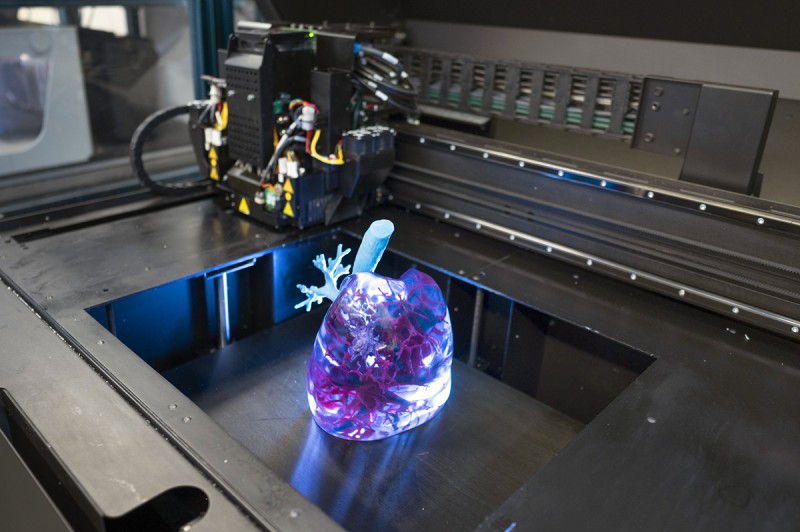
A 3D printed model of a lung from MSK's Biomedical Engineering Service.
Fall Semester
Section I — Experimental Biology
Imaging:
- Imaging at different scales
- Physics of converting a 3D object into a 2D image
- Electron microscopy
- Light microscopy
- Whole body imaging
Genetics:
- Nature and types of mutations
- CRISPR techniques and application
- Forward and reverse genetics
- Drosophila model systems
- Mouse genetics
Biochemistry:
- Molecular techniques for the analysis of DNA, RNA, and protein
- Protein production and purification
- Post-translational modifications
- Protein-nucleic acid interactions
Genomics:
- Basic overview of genomes
- Technology platforms for genomics
- Sequencing techniques and approaches
- Library construction
- Single-cell analyses
Quantitative and Computational Biology:
- Overview of Unix and R
- Review and plotting of TCGA data
- RNA-seq
- Single-cell RNA-seq
- ChIP-seq
Section II — Cancer Engineering
Molecular and Nanoengineering
- drug delivery
- nanomaterials
- instrumentation
- tissue engineering
Cancer Imaging
- Optical (microscopy and intravital)
- Acoustic (including ultrasound)
- Nuclear imaging (PET, SPECT, and CT) as well as magnetic resonance imaging (MRI/MRS).
Genetic Engineering
- Tools and concepts that can be applied to laboratory research.
- Benefits and risks
- Latest research and technologies advancing the science of genetic principles explored during the Experimental Biology course
Spring Semester
Section III — Immunology
- Cellular, molecular, and biochemical aspects of the immune system
- How immune responses function in physiology.
- Development of the immune system and the biological functions of its major components.
Section IV — Entrepreneurship
- Understanding intellectual property
- Evaluating the market for a technology
- Building a basic financial model
- Establishing funding mechanisms
- Assessing regulatory issues
- Developing a business plan.
Section V — Cancer Biology
- Cancer as a disease
- Genetic mechanisms
- Cancer signaling
- Computational biology and oncology
- Cancer metabolism
- Tumor heterogeneity
- Cancer modeling
- Tumor microenvironments
- Metastasis
- Targeted therapies
- Immunotherapy